This brief discusses the experiences of early career Black, Latina, and Afro Latina women in the trades. The COVID crisis has put a spotlight on the concentration of Black, Latina, and Afro-Latina women in low-wage jobs, including in many essential healthcare and retail jobs. The skilled construction trades have given many women an alternative to the poorly paid jobs in the service sector that many had to turn to before finding the trades. Skilled construction trades provide opportunities to build careers that are both challenging and fulfilling, pay a family sustaining wage with benefits, and can be accessed through ‘learn as you earn’ apprenticeships.
Resource Center
The Transit Workforce Center is pleased to host a curated collection of publications and other materials to assist stakeholders engaged in transit workforce development. The Resource Center includes case studies, training materials, research reports, and other materials of interest, including publications produced by federal government agencies, transit organizations, and independent research entities. Resources may be filtered by topic, resource type, and transit mode. This TWC blog post explains how to use the Resource Center.
We are continuing to update the Resource Center regularly. Please contact us via the Request Help menu option if you would like assistance using the Resource Center or are looking for resources on a particular topic. We also welcome suggestions of topics or specific resources to add.
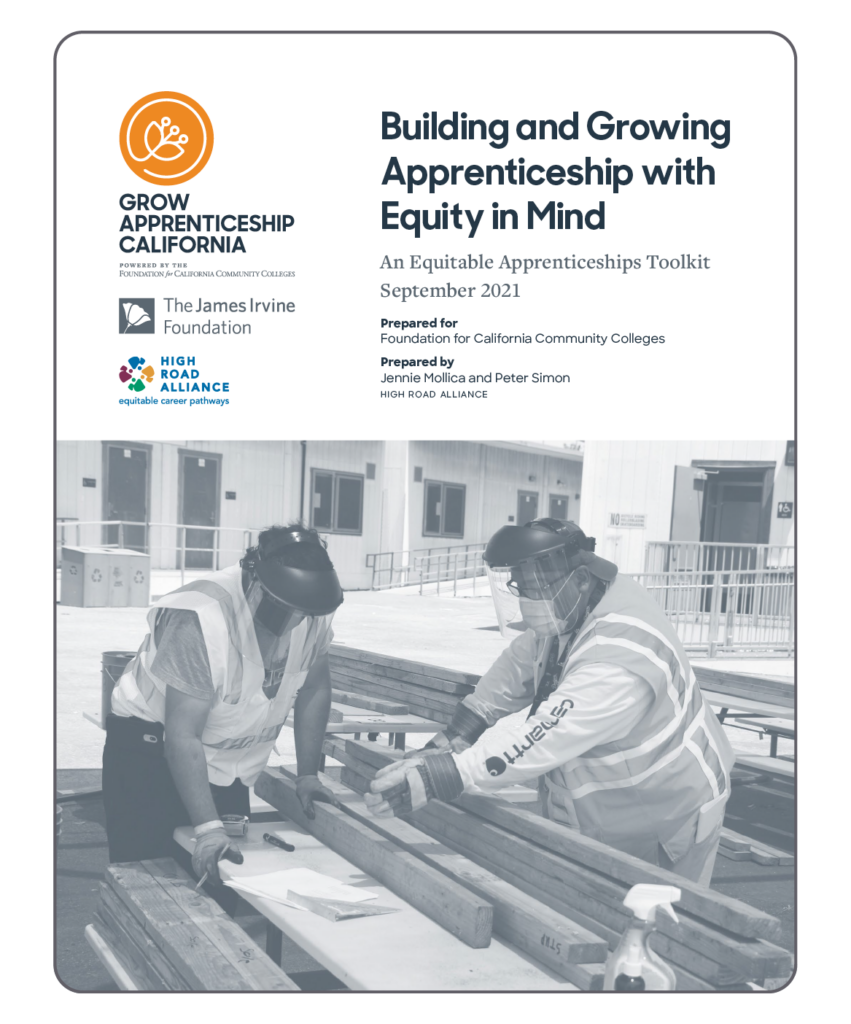
Building and Growing Apprenticeship with Equity in Mind
This toolkit was created to help those whose work involves designing and running pre-apprenticeship and apprenticeship programs to intentionally encourage and support the inclusion of apprentices who reflect the full
diversity of our communities — in terms of race, ethnicity, gender, primary language, disability, age, sexual orientation, and other factors.
High Road Alliance
September 2021
LEARN MORE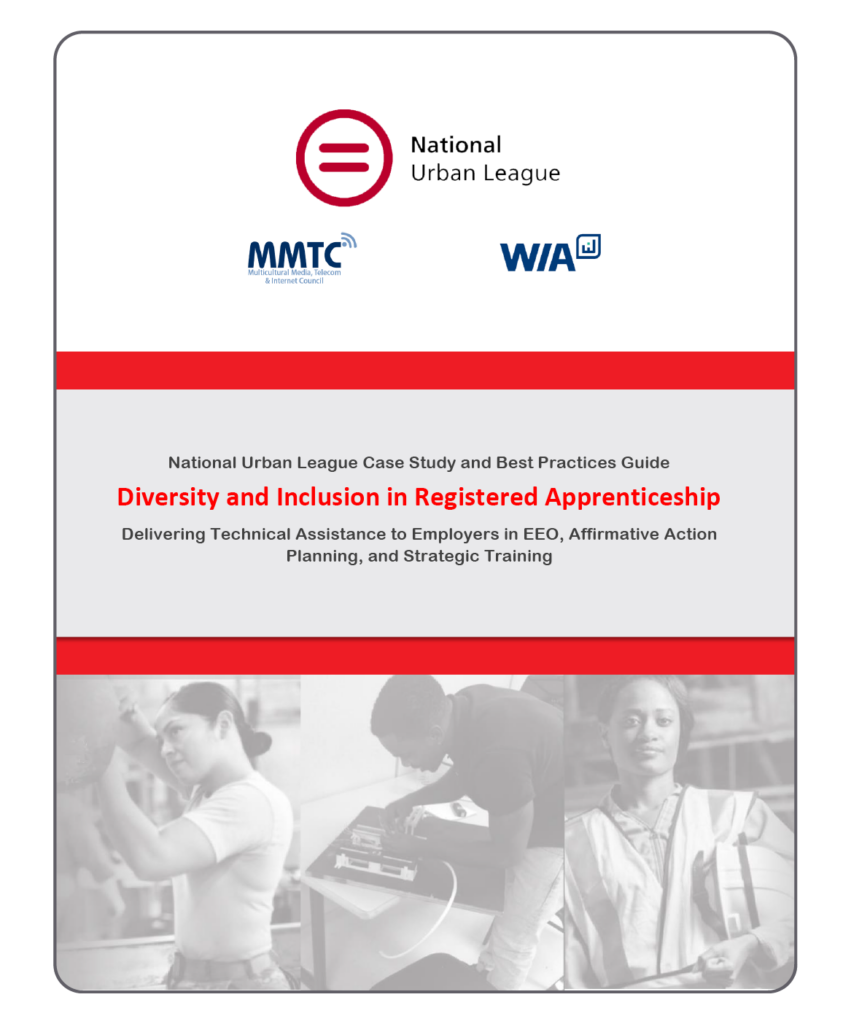
Diversity and Inclusion in Registered Apprenticeship
This case study examines the NUL Consortium’s strategies for providing technical assistance to employers as they seek to promote and diversify their Registered Apprenticeship programs. It includes a best practices toolkit detailing EEO compliance, affirmative action planning, and NUL’s employer DEIA training. It seeks to serve as a replicable guide for industry, equity, and opportunity partners, community-based organizations, and other groups or individuals with similar goals.
National Urban League
July 2021
LEARN MORE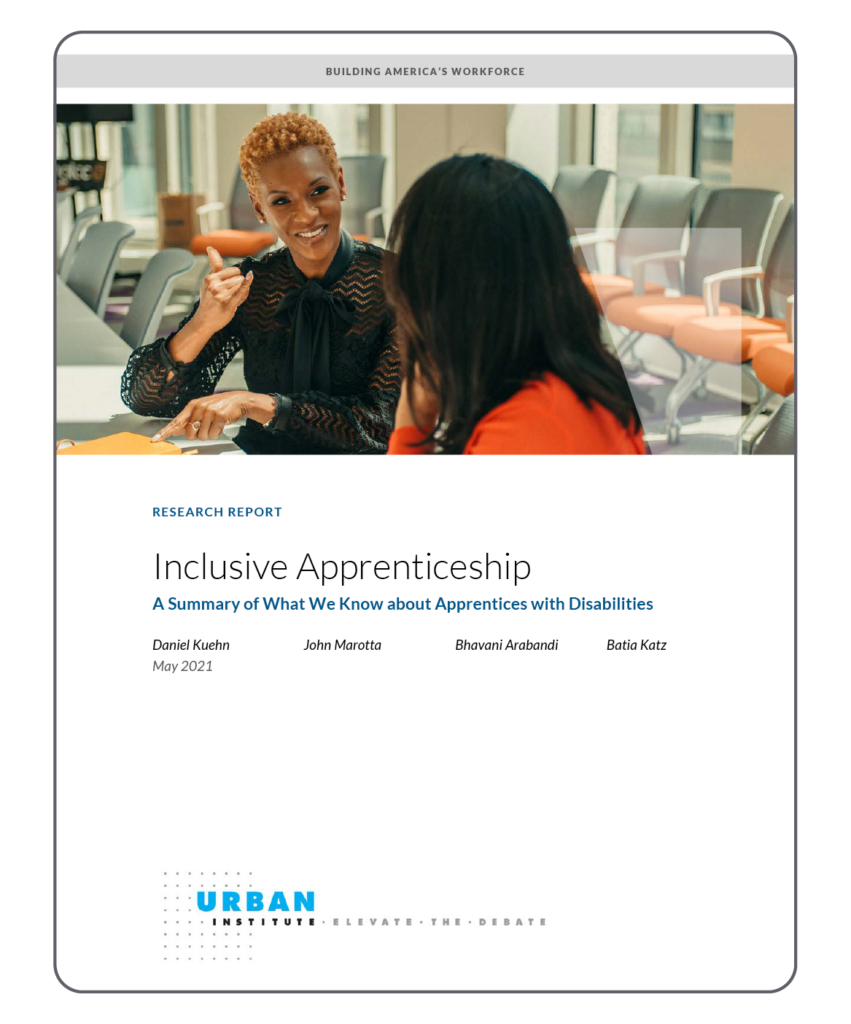
Inclusive Apprenticeship: A Summary of What We Know about Apprentices with Disabilities
This report summarizes current information on experiences of people with disabilities in apprenticeship, drawing on the research literature, interviews with experts on inclusive apprenticeship, and administrative and survey data. This report’s goal is to synthesize information about inclusive apprenticeship and provide insights about best practices to deepen both researchers’ and practitioners’ understanding.
Urban Institute
May 2021
TOPICS: Apprenticeship, Diversity, Equity, Inclusion, and Access, Hiring and Recruitment, Policy and Planning
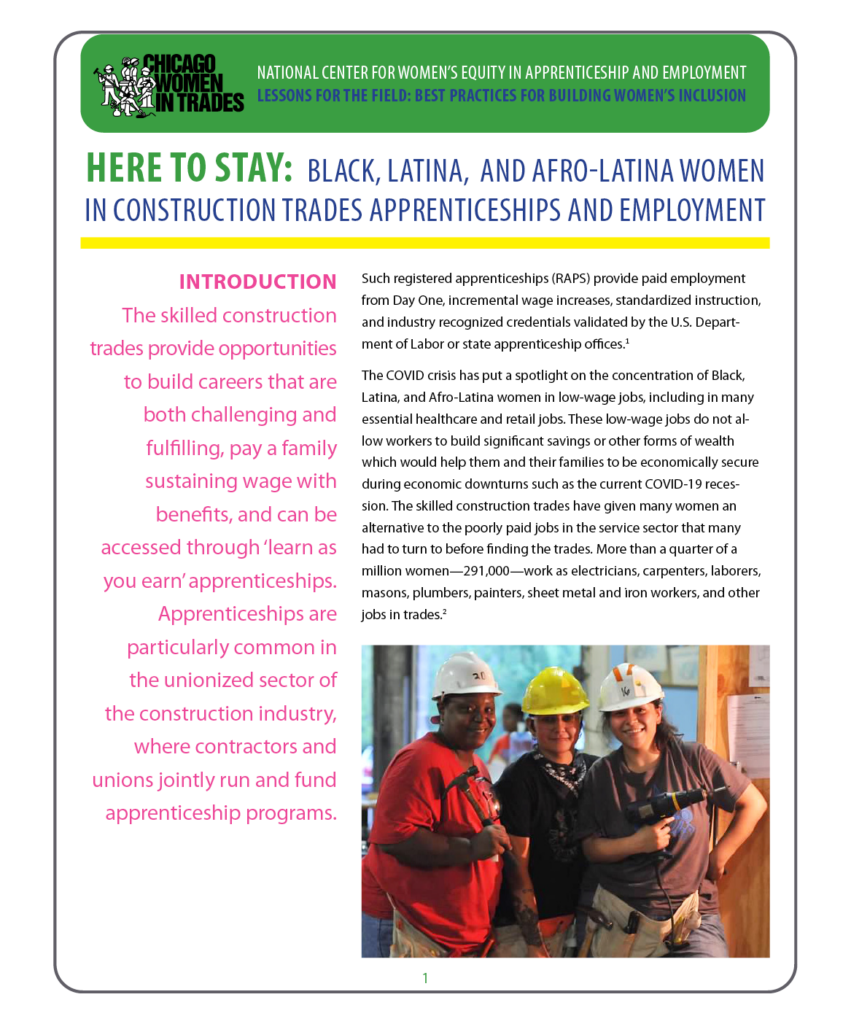
Here to Stay: Black, Latina, and Afro-Latina Women in Construction Trades Apprenticeships and Employment
Chicago Women in the Trades; Institute for Women's Policy Research
March 2021
TOPICS: Apprenticeship, Career Pathways, Diversity, Equity, Inclusion, and Access, Hiring and Recruitment
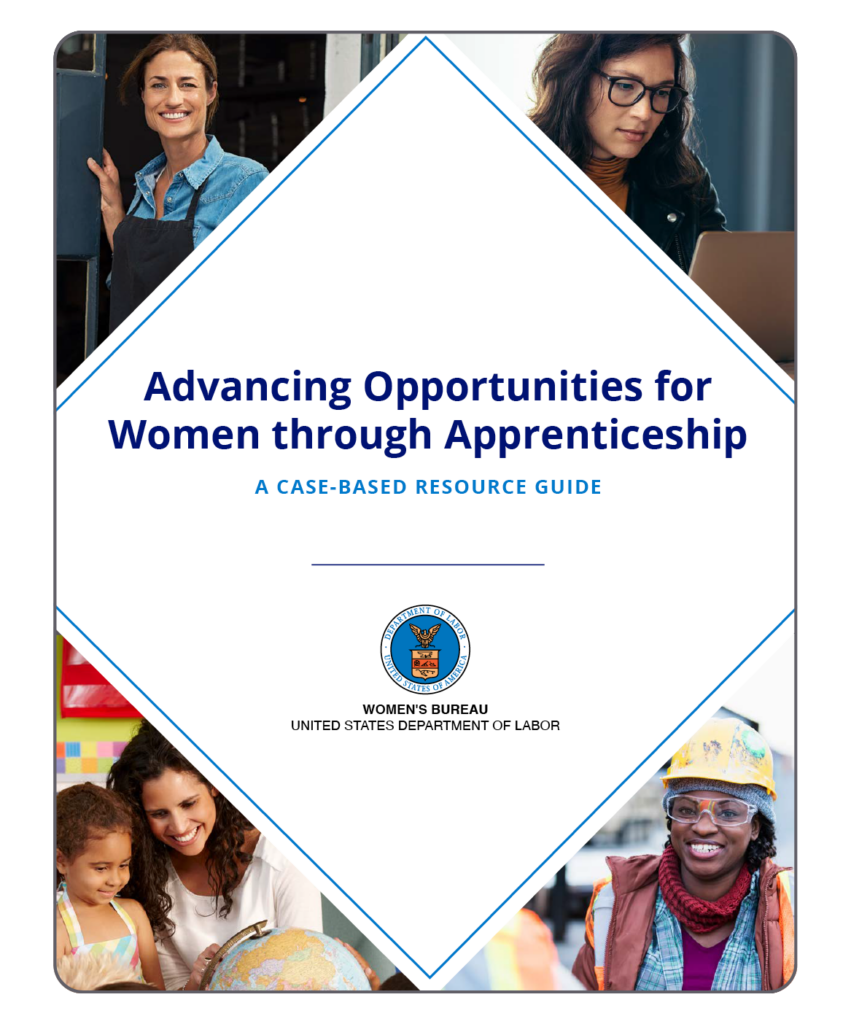
Advancing Opportunities for Women through Apprenticeship: A Case-Based Resource Guide
The Advancing Opportunities for Women through Apprenticeship case-based resource guide provides a framework for meaningful expansion of apprenticeship programs for women. The guide includes case studies on four high-quality, women-inclusive pre-apprenticeship and apprenticeship programs in a range of industry sectors.
Department of Labor
TOPICS: Apprenticeship, Career Pathways, Diversity, Equity, Inclusion, and Access, Mentorship, Policy and Planning, Retention
The case studies were developed through on-site visits to the program locations; interviews with program staff, partners, and current and former participants; and a review of program materials and data. They provide information and insights related to partnership development, program design, and outcomes that outline how pre-apprenticeship and apprenticeship programs can help women access family-sustaining jobs and quality career pathways. The guide identifies common strategies across the four programs to help others learn how to create programs that successfully open pathways to in-demand jobs for women through apprenticeships.
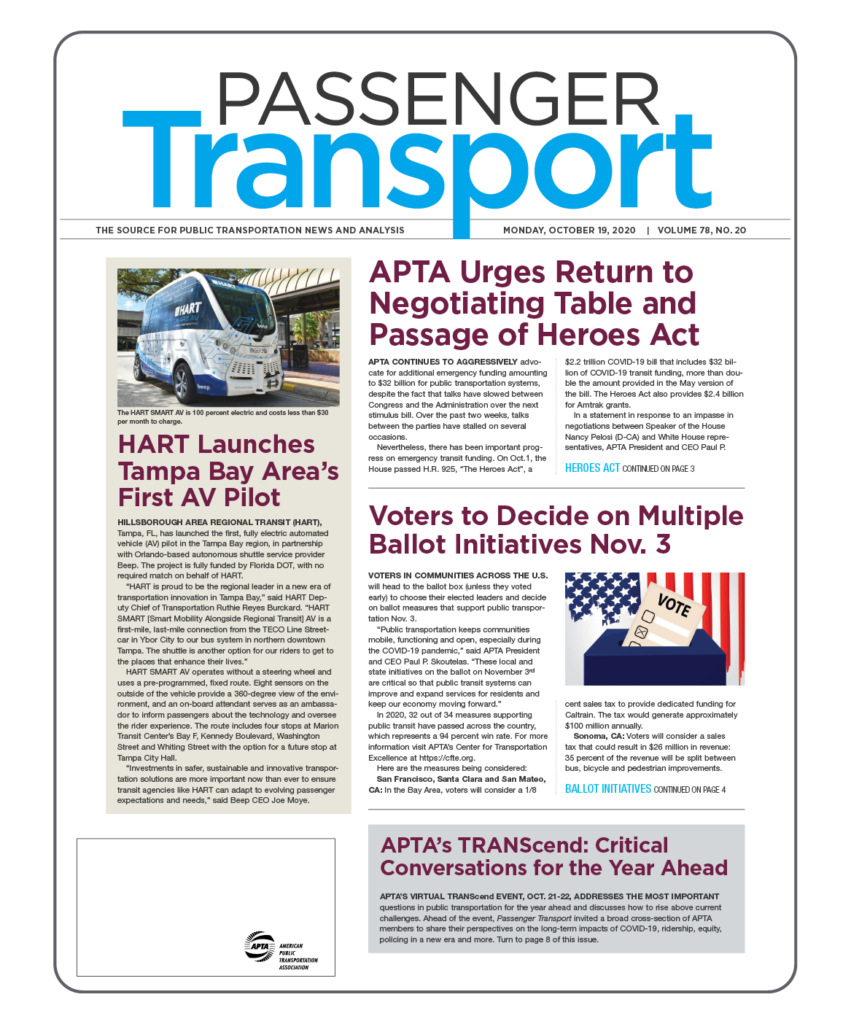
Transit Apprenticeship at Pierce Transit: From the Ground Up
This article in APTA’s Passenger Transport issue discusses the apprenticeship program at Pierce Transit, which is part of a transit apprenticeship initiative and has received technical assistance in structuring their apprenticeship program as well as financial assistance to reimburse some training costs.
American Public Transportation Association; International Transportation Learning Center
October 2020
TOPICS: Apprenticeship, Training
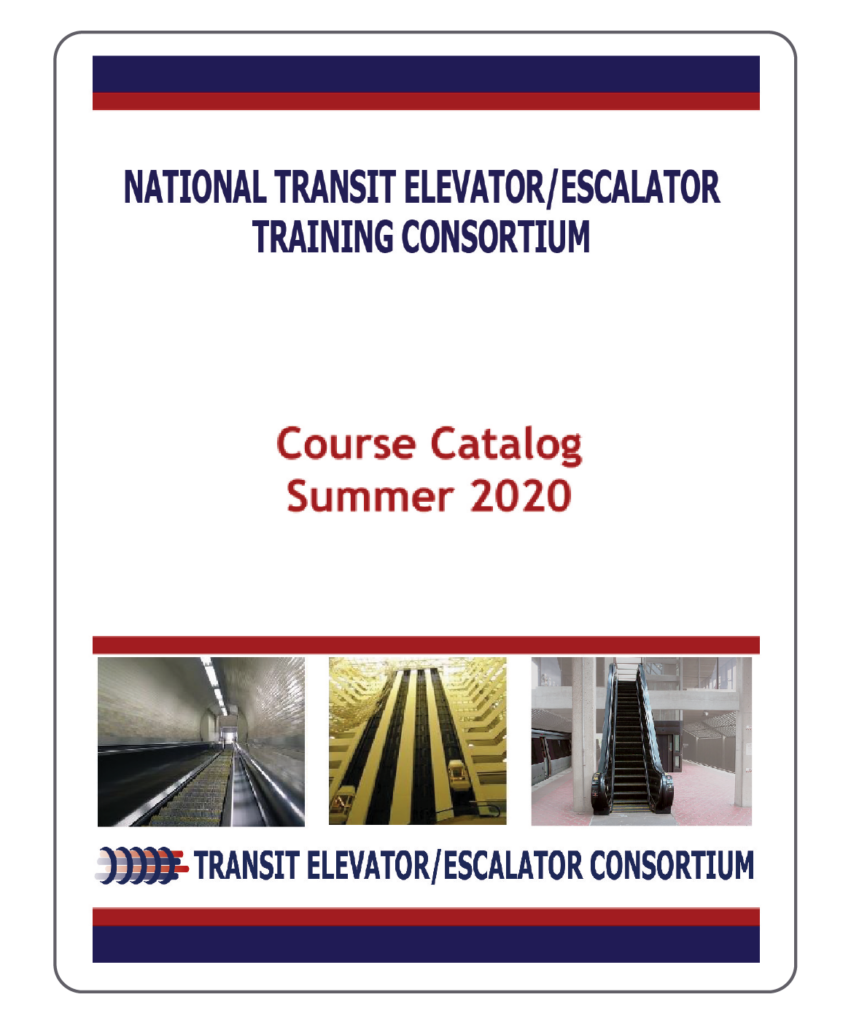
Elevator/Escalator Training Consortium
The International Transportation Learning Center (ITLC) organizes multiple national training consortia to develop standards-based national training courseware for frontline occupations in public transportation organizations. The Transit Elevator-Escalator Training Consortium is one such consortium, focused on training materials for elevator and escalator technicians.
International Transportation Learning Center
TOPICS: Apprenticeship, Career Pathways, Labor-Management Partnerships, Trainer and Mentor Development, Training
The International Transportation Learning Center (ITLC) organizes multiple national training consortia to develop standards-based national training courseware for frontline occupations in public transportation organizations.
The Transit Elevator-Escalator Training Consortium (the Consortium) was the first in an ongoing series of industry-wide collaborative programs to develop integrated systems of training for key frontline occupations in public transportation. Building on national training standards developed by industry Subject Matter Experts (SMEs) from 2006 to 2010 and then adopted by the American Public Transportation Association (APTA), the Consortium developed a full set of standardized national courseware to support training and apprenticeship programs for transit elevator/escalator (El-Es) technicians. The curriculum and courseware development team was composed of subject matter experts (SMEs) from five member agencies and unions from across the country. Membership of the Consortium consists of transit systems that maintain their vertical transportation equipment in-house, rather than relying on outside contractors. Equipment manufacturers contributed access to their technical drawings and manuals to enrich the courseware.
The list of courseware as of Summer 2020 is contained in the attached catalog.
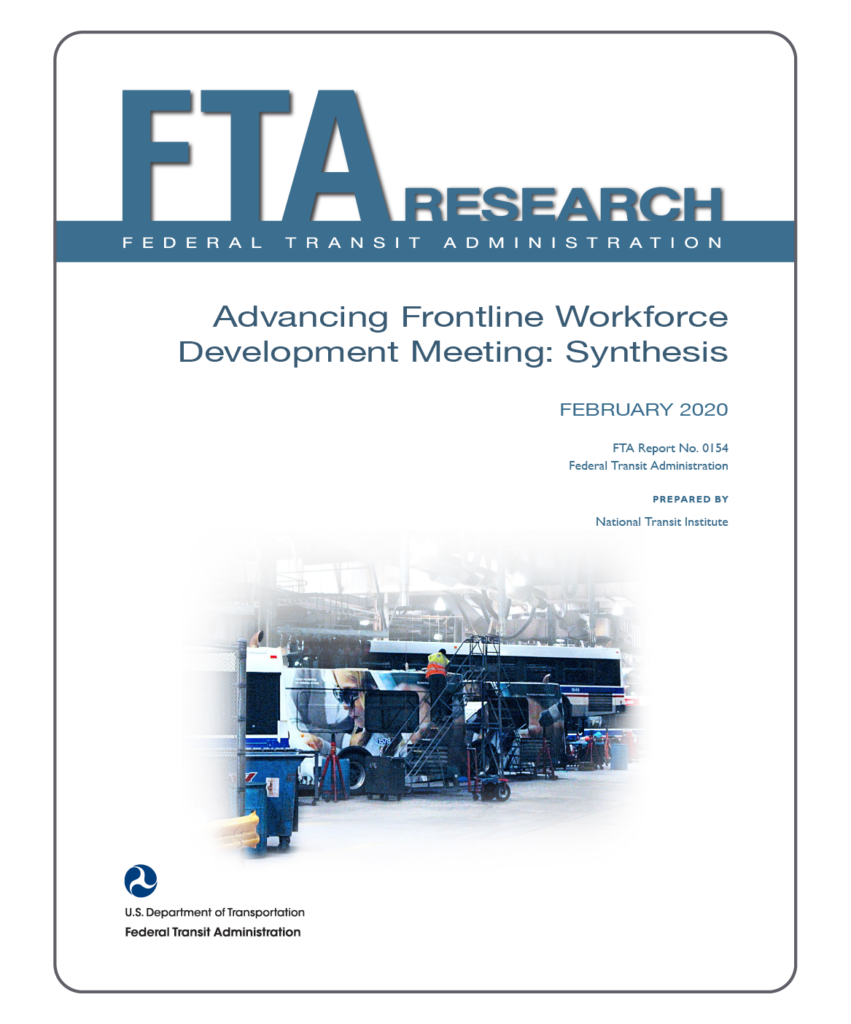
Advancing Frontline Workforce Development Meeting: Synthesis
This report synthesizes findings from a two-day gathering of more than two dozen transit industry labor and management representatives who engaged in in-depth discussions on frontline workforce training needs across the U.S. The purpose of the meeting was to identify immediate, short-term, and long-term training needs for the frontline public transportation workforce in the U.S. and ways to connect apprenticeship and formal training programs to support these needs.





 CLEAR
CLEAR

